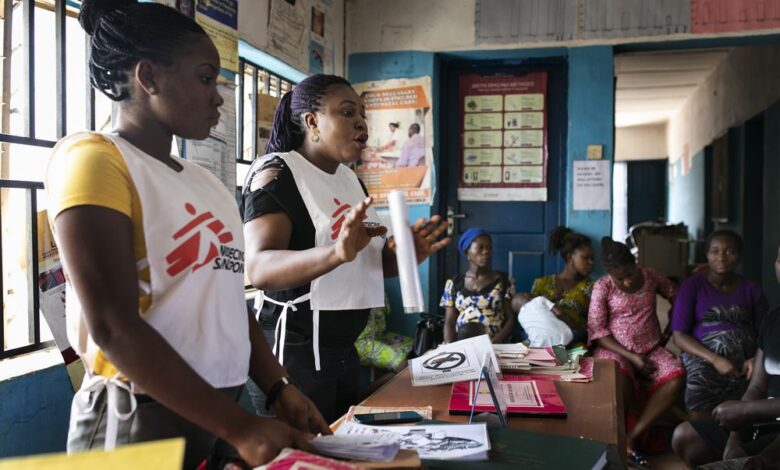MSF Sensitises Communities To Contain Spread Of Lassa Fever Ahead Of Dry Season
The Nigeria Centre for Disease Control (NCDC) has recorded an increase in cases of the disease. From January to August, there were 894 reported cases compared to 510 cases that were confirmed the whole of 2021.

Medécins Sans Frontières/Doctors Without Borders (MSF) is encouraging and sensitising communities in Abakaliki, Ebonyi State, southeast Nigeria on preventive measures towards Lassa fever ahead of the annual dry season.
Lassa fever is a contagious disease that spreads through contact with infected rats. In a press statement, the international medical organisation explained that by detecting the disease early and taking hygienic actions like ridding houses and the environment of rats, many lives can be saved.
With most cases of the disease occurring during the dry season which spans from December to March, early diagnosis and treatment can significantly reduce infection and death rate, MSF said. Some of the causes of Lassa fever include fever, headache, sore throat, vomiting, diarrhoea and overall body pain. In severe cases, bleeding from the eyes, nose, mouth, and other parts of the body could occur.
The Nigeria Centre for Disease Control (NCDC) has recorded an increase in cases of the disease. From January to August, there were 894 reported cases compared to 510 cases that were confirmed the whole of 2021.
Elton Mbofana, MSF’s project coordinator in the state noted that, “healthcare workers are most at risk of catching the disease. The major risk for them is contracting the disease while treating a patient with Lassa fever, due to a lack of personal protective equipment [PPE] and sub-optimal infection prevention and control measures.”
The statement noted that there are vaccines to prevent the disease and diagnosing it is complex and unaffordable for many. It stated that the drug used to treat Lassa fever is Ribavirin which is also costly for many across the country and West Africa. “On top of all this, people infected with Lassa fever often suffer stigma because of its association with hunting rats – a common source of food for lower socio-economic groups,” it said.
Dr Slaymen Ammar, MSF’s project medical referent noted that the cost of treatment needs to be subsidised and made available so everyone can have access to proper care. He also called on the Nigerian health authorities to improve overall funding so that Lassa fever treatment is free and so health workers and health facilities can implement infection prevention and control.
“In addition, reducing the concentration of rodents through good waste management and food storage practices can also cut Lassa fever transmission and prevalence,” Dr Ammar added.
MSF began medical activities in Abakaliki, in March 2018 to respond to and contain the Lassa fever endemic. It has been focusing on reducing transmission to healthcare workers and on improving case management to reduce mortality rates from the disease.
The organisation presently works with the NCDC and State Ministry of Health in the Alex Ekwueme Federal University Teaching Hospital, Abakaliki (AE-FUTHA) where they test and treat patients with Lassa fever.
So far this year, MSF teams in AE-FUTHA have treated 58 patients for the disease, while also providing them with mental health support and conducting awareness-raising activities in the community.
Support Our Journalism
There are millions of ordinary people affected by conflict in Africa whose stories are missing in the mainstream media. HumAngle is determined to tell those challenging and under-reported stories, hoping that the people impacted by these conflicts will find the safety and security they deserve.
To ensure that we continue to provide public service coverage, we have a small favour to ask you. We want you to be part of our journalistic endeavour by contributing a token to us.
Your donation will further promote a robust, free, and independent media.
Donate HereStay Closer To The Stories That Matter




